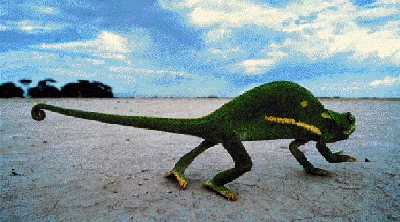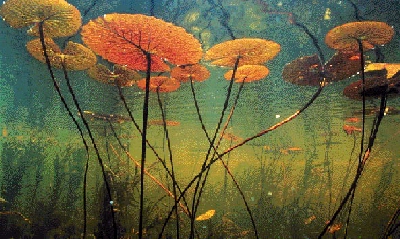
The editors of National Geographic shared my excitement, and with their
generous support, my mission expanded to covering the Okavango and northern
Botswana in a way that was as comprehensive as the subject deserved. My
efforts were aimed at chronicling not just the Pleistocene abundance of
wildlife, but the epic quality of this world in which these animals are
bound together—and the crucial importance of water, without which all life
in this land would fade away. For a year, I roamed the wetlands and the
dry lands of northern Botswana. I lived by the rhythms of water and the
movements of wildlife. I came to know landscapes intimately, and animals
individually-and watched the dramas of their lives unfold. I lived out
of Land Rovers and canvas tents and crouched at water holes for days on
end. I slipped through the swamp in dugout canoes and followed lions through
the night. I worked with scientists, hunters and Bushmen; wildlife officials,
safari guides and people of many races and nationalities who were either
born here or had come to know this hard-bitten country as home. By the
end of the year, the dirt of the land was under my fingernails. It was
hard to leave.

The experience was the realization of a personal dream. To others not
yet familiar with this part of the world, the very notion that a place
as wild and as untouched as the Okavango even exists may seem like a dream.
But the ultimate motivation behind this work is to connect the dream with
a larger reality. That reality includes the human presence that will determine
the Okavango's fate. In Botswana, the legitimate claims of local people
and the economic aspirations of a developing country must be balanced with
the growing concern over preserving the Earth's last Edens. The Okavango
represents the best of old Africa on a grand scale, but it also affords
perhaps the best opportunity on the continent to ensure that the glory
of wildlife will be part of New Africa. And that is a dream I hope will
be shared.